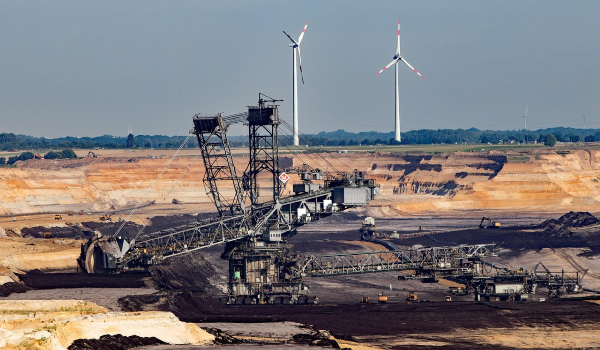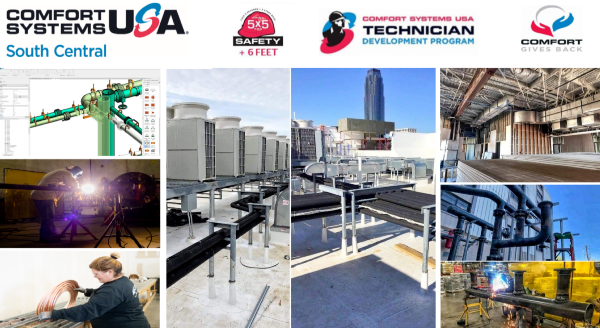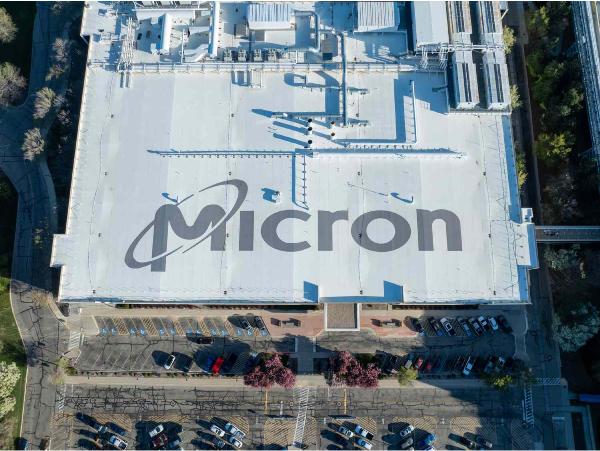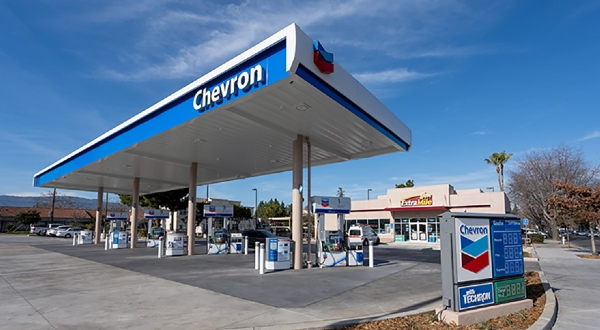Overview of the Building Supply Industry
The building supply industry encompasses a diverse range of companies engaged in the production and distribution of essential construction materials, including lumber, cement, aggregates, and more. This sector plays a pivotal role in global construction activities, providing the foundational materials required for residential, commercial, and industrial projects. With its broad scope and crucial contributions, the building supply industry forms a critical backbone of the construction value chain, catering to both large-scale infrastructure developments and smaller, localized projects.
Economic conditions significantly influence the building supply industry, as demand for materials often correlates with fluctuations in construction activity. In periods of economic growth, heightened investment in infrastructure and real estate typically drives increased demand for building supplies, while economic downturns can lead to reduced construction activity and a dip in material requirements. The industry’s sensitivity to market dynamics underscores the importance of strategic planning and adaptability for companies aiming to navigate cyclical trends effectively.
Competition within the building supply industry is intense, with companies striving for innovation and product development to gain a competitive edge. From eco-friendly building materials to advanced technologies enhancing efficiency and durability, firms often invest in research and development to meet evolving consumer and regulatory demands. Additionally, the industry is characterized by consolidation, as mergers and acquisitions create larger entities better positioned to capitalize on economies of scale. This competitive and consolidated environment fosters continuous evolution, encouraging businesses to adapt and thrive in the face of changing market demands.
Top Building Supply Stocks
The building supply sector boasts several standout stocks that have consistently demonstrated strong performance and market leadership. Home Depot (HD), the world's largest home improvement retailer, is renowned for its robust growth and profitability. With a vast network of stores and a comprehensive product range, Home Depot caters to both DIY enthusiasts and professional contractors. Its strategic investments in technology and customer experience have further solidified its position as a top choice for investors seeking exposure to the building supply industry.
Lowe’s (LOW), another major player in the home improvement retail space, commands a significant market share and has a proven track record of paying consistent dividends. Known for its customer-centric approach and extensive product offerings, Lowe’s has successfully captured the loyalty of homeowners and professionals alike. The company's focus on operational efficiency and digital transformation has enabled it to maintain steady growth, making it an attractive option for dividend-focused investors.
In the construction aggregates segment, Vulcan Materials (VMC) and Martin Marietta Materials (MLM) stand out as industry leaders with strong presences in the U.S. market. Both companies specialize in producing essential materials like crushed stone, sand, and gravel, which are critical for infrastructure projects. Vulcan Materials benefits from its strategic locations and pricing power, while Martin Marietta Materials excels in operational efficiency and innovation. Additionally, USG Corporation (USG), a leading manufacturer of building materials, is known for its high-quality gypsum and ceiling products. USG's commitment to sustainability and product innovation positions it as a key player in the building supply industry, catering to diverse construction needs. Together, these stocks represent a compelling mix of growth, stability, and industry leadership.
Investment Strategies and Considerations
Dividend investing is a key strategy for those seeking a reliable income stream while maintaining exposure to the building supply sector’s long-term growth potential. Companies like Lowe’s and Home Depot, known for their consistent dividend payouts, offer investors an opportunity to generate steady returns while benefiting from the sector’s resilience. Dividend-paying stocks are particularly attractive during economic uncertainty, as they can help balance portfolio risks and provide a cushion against market volatility.
For investors focused on growth, the building supply industry presents compelling opportunities, driven by increasing demand for construction materials and innovative products. Stocks like Vulcan Materials and Martin Marietta Materials stand out as leaders in the aggregates segment, bolstered by ongoing infrastructure developments and urbanization. Growth-oriented investors may also find opportunities in companies that prioritize sustainability and technological advancements, as these trends continue to shape the industry and open new avenues for expansion.
Value investing offers another lens through which investors can approach building supply stocks, identifying companies that may be trading below their intrinsic value. Periods of market volatility or sector-specific challenges can reveal undervalued opportunities, allowing investors to buy quality stocks at a discount. Regardless of the strategy, staying attuned to industry trends—such as fluctuations in construction activity and shifts in material demand—is essential for informed decision-making. By understanding these dynamics, investors can position themselves to capitalize on the evolving building supply landscape.
Largest Companies in the Industry
The building supply industry is dominated by several major players, with Home Depot (HD) leading the pack. As the largest home improvement retailer in the world, Home Depot boasts a market capitalization of over $250 billion. The company’s expansive network of stores and focus on delivering top-tier customer experience have solidified its position as a market leader. Its strategic investments in e-commerce and supply chain efficiency have further enhanced its competitive edge, making it a key stock for investors looking to gain exposure to the building supply sector.
Lowe’s (LOW) follows closely behind with a market capitalization exceeding $150 billion. Known for its comprehensive product offerings and customer-centric approach, Lowe’s has carved out a significant share of the home improvement market. Its emphasis on operational efficiency, coupled with consistent dividend payments, highlights its stability and appeal to income-focused investors. Lowe’s ongoing digital transformation initiatives continue to support its growth trajectory, ensuring its place among the industry’s largest and most influential companies.
In the construction aggregates segment, Vulcan Materials (VMC) and Martin Marietta Materials (MLM) stand out with market capitalizations of over $20 billion and $15 billion, respectively. Both companies are integral to infrastructure projects across the United States, providing essential materials like crushed stone, sand, and gravel. Additionally, USG Corporation (USG), a leader in the manufacturing of building materials with a market capitalization of over $10 billion, is renowned for its high-quality gypsum and ceiling products. These industry giants collectively shape the landscape of the building supply sector, driving innovation and addressing the evolving demands of construction activities





























Overview of the Building Supply Industry
The building supply industry encompasses a diverse range of companies engaged in the production and distribution of essential construction materials, including lumber, cement, aggregates, and more. This sector plays a pivotal role in global construction activities, providing the foundational materials required for residential, commercial, and industrial projects. With its broad scope and crucial contributions, the building supply industry forms a critical backbone of the construction value chain, catering to both large-scale infrastructure developments and smaller, localized projects.
Economic conditions significantly influence the building supply industry, as demand for materials often correlates with fluctuations in construction activity. In periods of economic growth, heightened investment in infrastructure and real estate typically drives increased demand for building supplies, while economic downturns can lead to reduced construction activity and a dip in material requirements. The industry’s sensitivity to market dynamics underscores the importance of strategic planning and adaptability for companies aiming to navigate cyclical trends effectively.
Competition within the building supply industry is intense, with companies striving for innovation and product development to gain a competitive edge. From eco-friendly building materials to advanced technologies enhancing efficiency and durability, firms often invest in research and development to meet evolving consumer and regulatory demands. Additionally, the industry is characterized by consolidation, as mergers and acquisitions create larger entities better positioned to capitalize on economies of scale. This competitive and consolidated environment fosters continuous evolution, encouraging businesses to adapt and thrive in the face of changing market demands.
Top Building Supply Stocks
The building supply sector boasts several standout stocks that have consistently demonstrated strong performance and market leadership. Home Depot (HD), the world's largest home improvement retailer, is renowned for its robust growth and profitability. With a vast network of stores and a comprehensive product range, Home Depot caters to both DIY enthusiasts and professional contractors. Its strategic investments in technology and customer experience have further solidified its position as a top choice for investors seeking exposure to the building supply industry.
Lowe’s (LOW), another major player in the home improvement retail space, commands a significant market share and has a proven track record of paying consistent dividends. Known for its customer-centric approach and extensive product offerings, Lowe’s has successfully captured the loyalty of homeowners and professionals alike. The company's focus on operational efficiency and digital transformation has enabled it to maintain steady growth, making it an attractive option for dividend-focused investors.
In the construction aggregates segment, Vulcan Materials (VMC) and Martin Marietta Materials (MLM) stand out as industry leaders with strong presences in the U.S. market. Both companies specialize in producing essential materials like crushed stone, sand, and gravel, which are critical for infrastructure projects. Vulcan Materials benefits from its strategic locations and pricing power, while Martin Marietta Materials excels in operational efficiency and innovation. Additionally, USG Corporation (USG), a leading manufacturer of building materials, is known for its high-quality gypsum and ceiling products. USG's commitment to sustainability and product innovation positions it as a key player in the building supply industry, catering to diverse construction needs. Together, these stocks represent a compelling mix of growth, stability, and industry leadership.
Investment Strategies and Considerations
Dividend investing is a key strategy for those seeking a reliable income stream while maintaining exposure to the building supply sector’s long-term growth potential. Companies like Lowe’s and Home Depot, known for their consistent dividend payouts, offer investors an opportunity to generate steady returns while benefiting from the sector’s resilience. Dividend-paying stocks are particularly attractive during economic uncertainty, as they can help balance portfolio risks and provide a cushion against market volatility.
For investors focused on growth, the building supply industry presents compelling opportunities, driven by increasing demand for construction materials and innovative products. Stocks like Vulcan Materials and Martin Marietta Materials stand out as leaders in the aggregates segment, bolstered by ongoing infrastructure developments and urbanization. Growth-oriented investors may also find opportunities in companies that prioritize sustainability and technological advancements, as these trends continue to shape the industry and open new avenues for expansion.
Value investing offers another lens through which investors can approach building supply stocks, identifying companies that may be trading below their intrinsic value. Periods of market volatility or sector-specific challenges can reveal undervalued opportunities, allowing investors to buy quality stocks at a discount. Regardless of the strategy, staying attuned to industry trends—such as fluctuations in construction activity and shifts in material demand—is essential for informed decision-making. By understanding these dynamics, investors can position themselves to capitalize on the evolving building supply landscape.
Largest Companies in the Industry
The building supply industry is dominated by several major players, with Home Depot (HD) leading the pack. As the largest home improvement retailer in the world, Home Depot boasts a market capitalization of over $250 billion. The company’s expansive network of stores and focus on delivering top-tier customer experience have solidified its position as a market leader. Its strategic investments in e-commerce and supply chain efficiency have further enhanced its competitive edge, making it a key stock for investors looking to gain exposure to the building supply sector.
Lowe’s (LOW) follows closely behind with a market capitalization exceeding $150 billion. Known for its comprehensive product offerings and customer-centric approach, Lowe’s has carved out a significant share of the home improvement market. Its emphasis on operational efficiency, coupled with consistent dividend payments, highlights its stability and appeal to income-focused investors. Lowe’s ongoing digital transformation initiatives continue to support its growth trajectory, ensuring its place among the industry’s largest and most influential companies.
In the construction aggregates segment, Vulcan Materials (VMC) and Martin Marietta Materials (MLM) stand out with market capitalizations of over $20 billion and $15 billion, respectively. Both companies are integral to infrastructure projects across the United States, providing essential materials like crushed stone, sand, and gravel. Additionally, USG Corporation (USG), a leader in the manufacturing of building materials with a market capitalization of over $10 billion, is renowned for its high-quality gypsum and ceiling products. These industry giants collectively shape the landscape of the building supply sector, driving innovation and addressing the evolving demands of construction activities